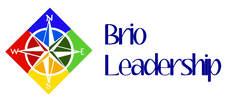 Many companies have jumped on the culture bandwagon, creating their own core values. Some of these organizations have even defined the meaning of these values; what they mean when they have “integrity” or “customer-focused” in this list of standards. Not many have taken the third step, which is defining the behaviors that both support and detract from the values. I’ve worked with many organizations on creating their values. Often, these values are dictated from upper management for the entire organization. That’s OK because it’s difficult in large organizations to involve all the team members in values creation. It’s also OK because each business unit and department gets to take the values to the next level by defining the behaviors that go along with the value statement. Explicitly define your understanding of the value word Let’s start with the definition of the value. Rather than presenting only a word or phrase for each value, it’s best to define exactly what you mean by the value. For example, one of Brio Leadership’s core values is “Integrity.” For some, this word means simply following the rules. For us at Team Brio, it means “doing what we say we’ll do, being scrupulously honest, because everything matters.” Can you see how these two definitions are quite different?
0 Comments
|
From the desk of
|
Our services |
Our Company |

 RSS Feed
RSS Feed

